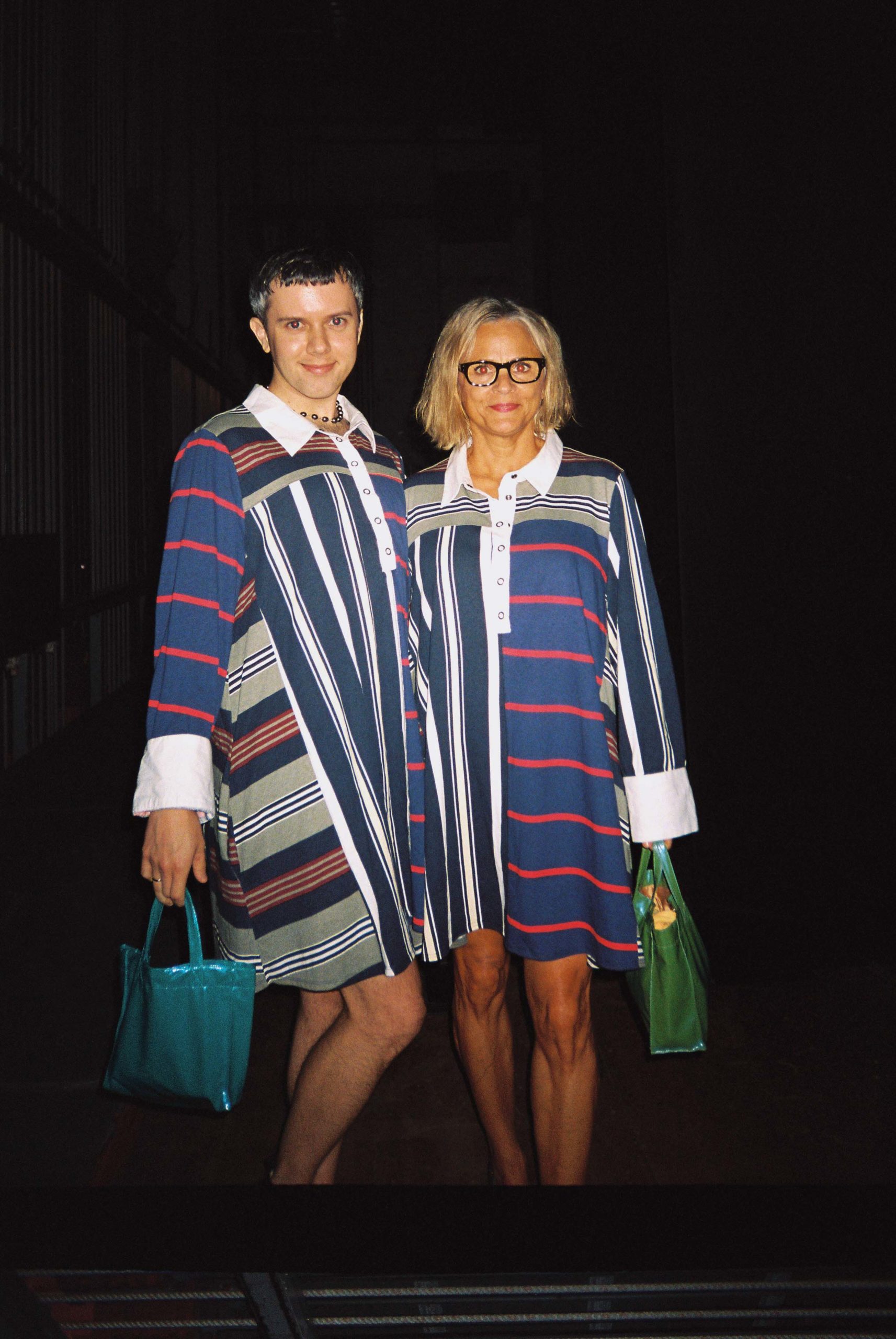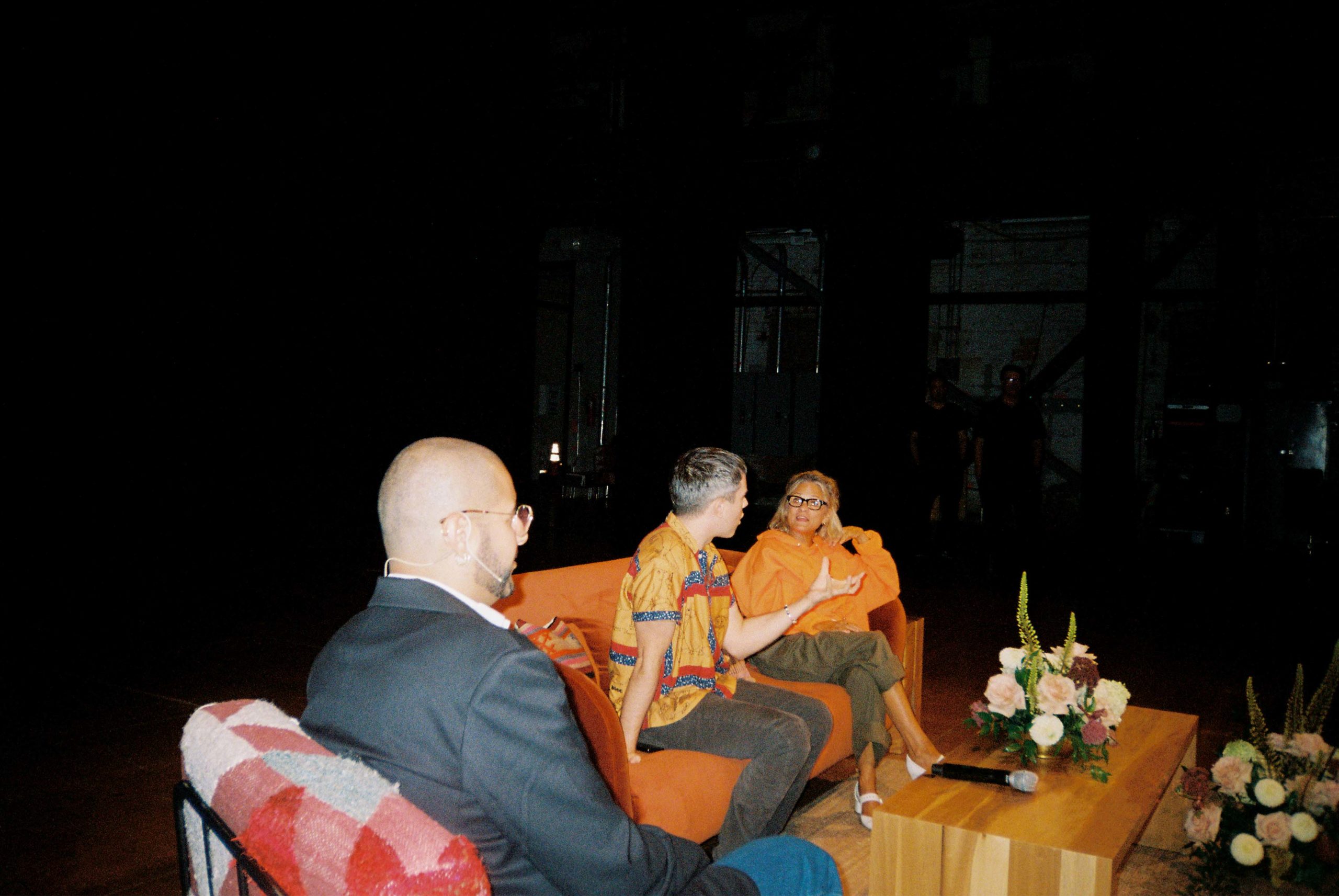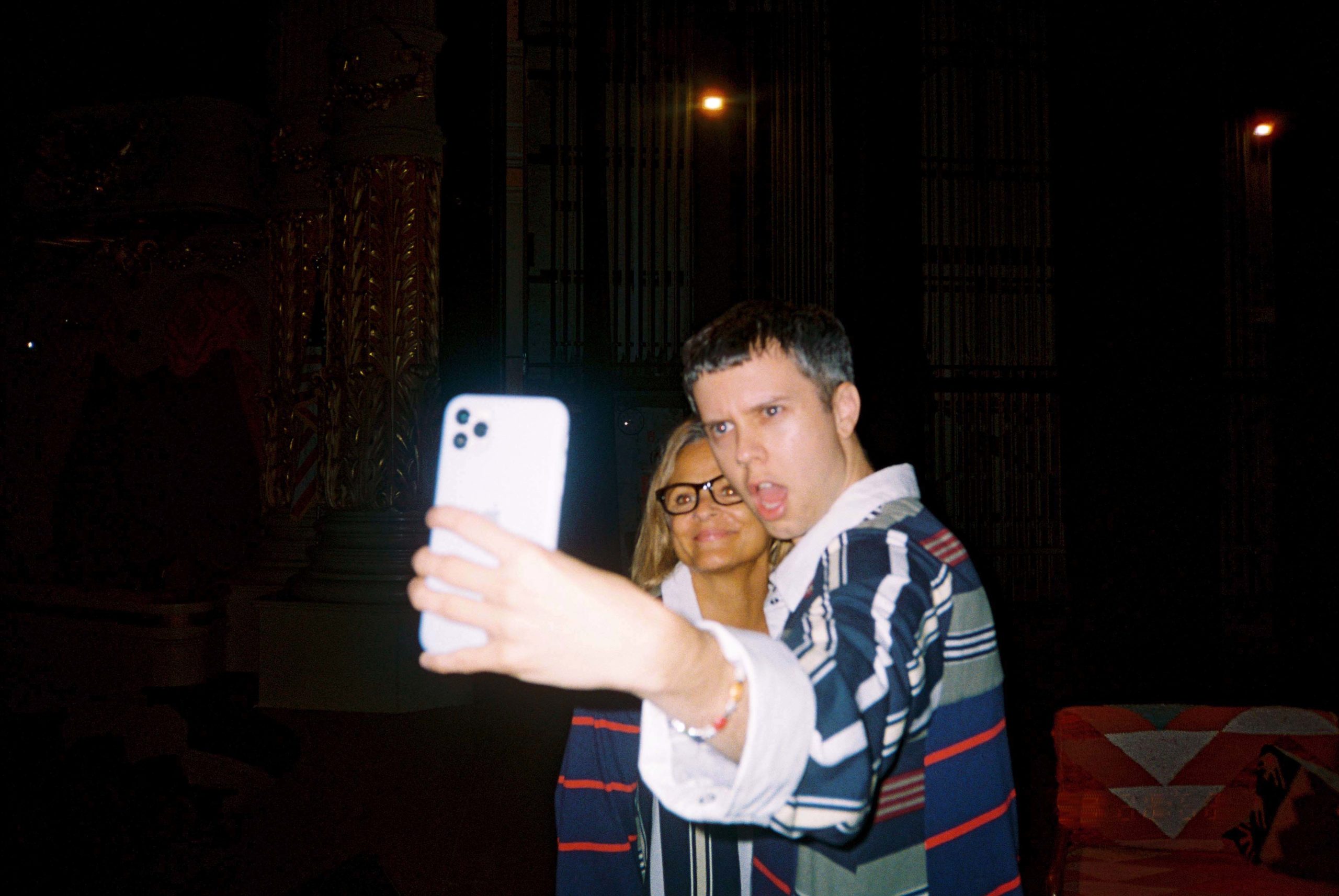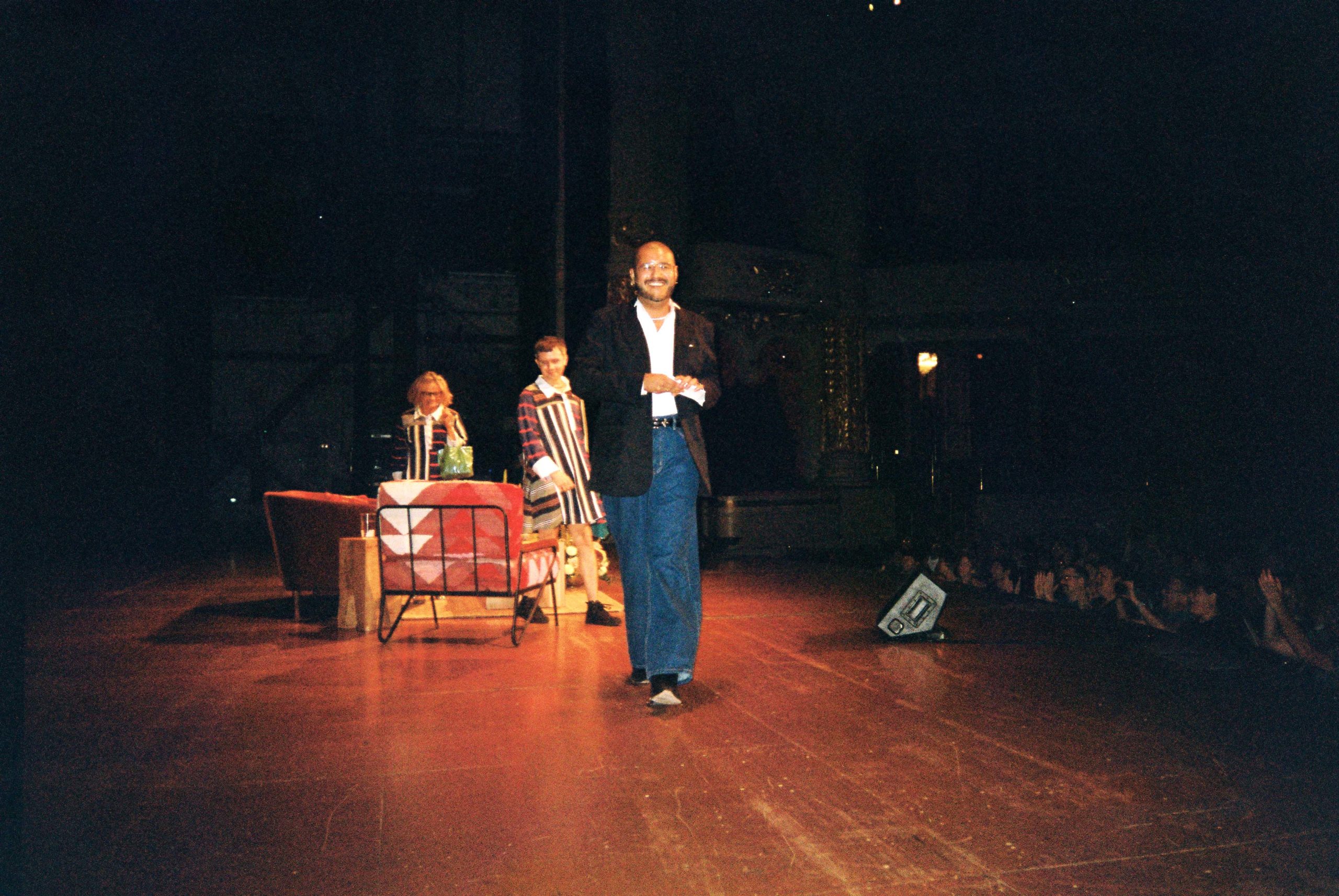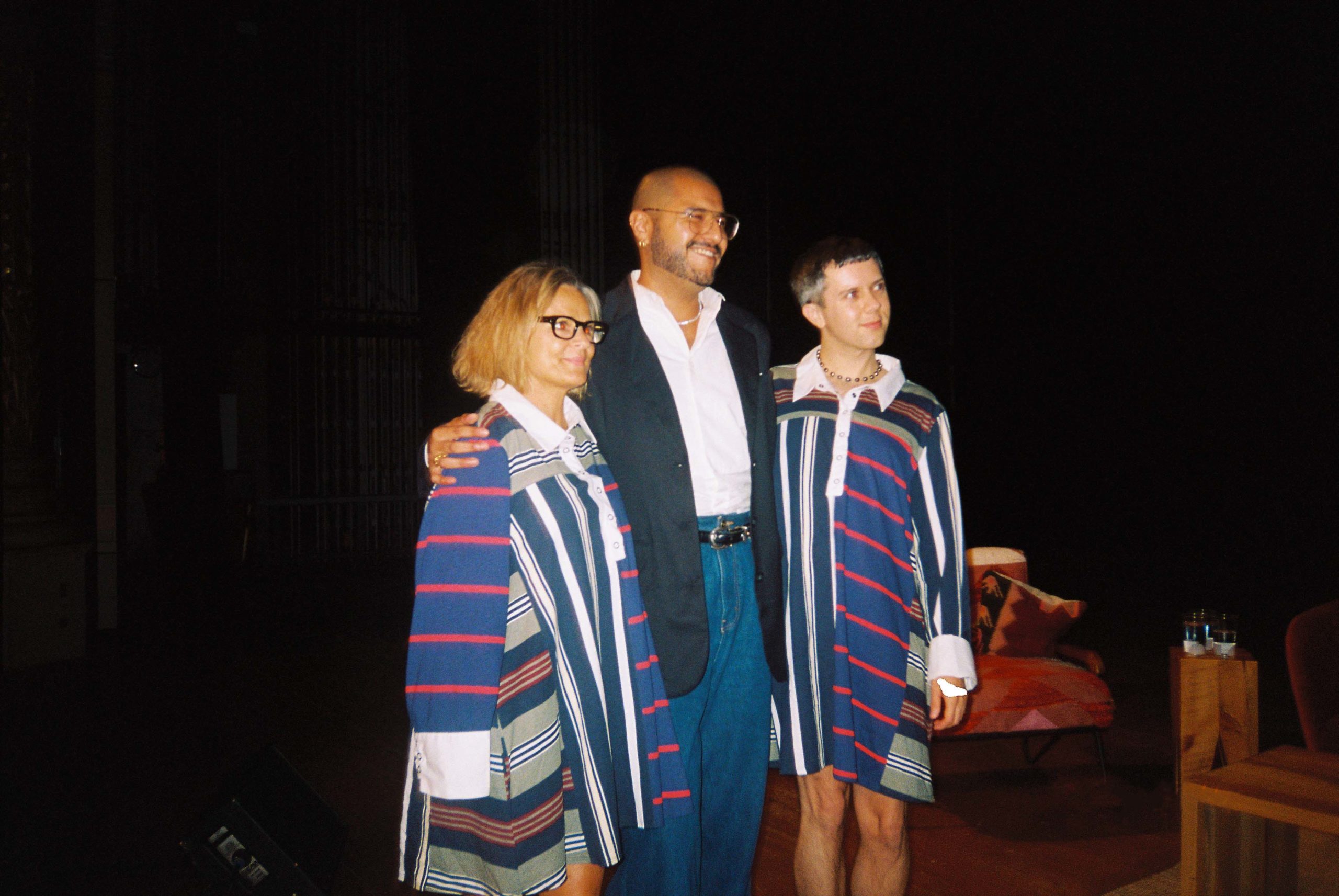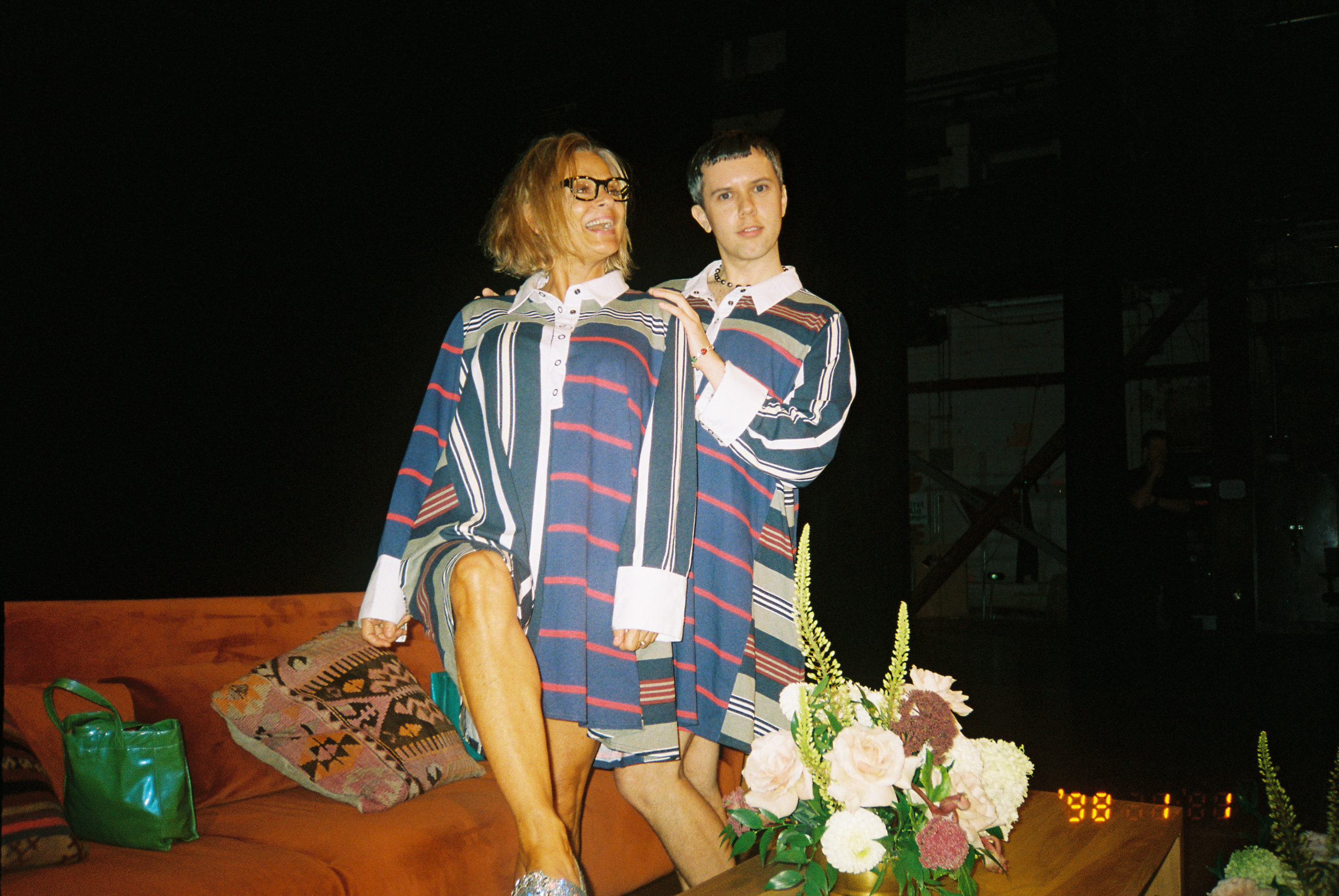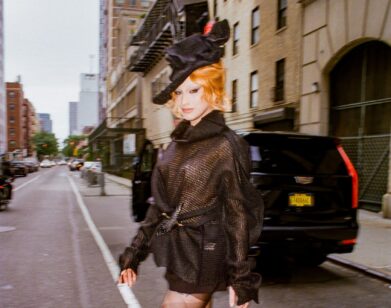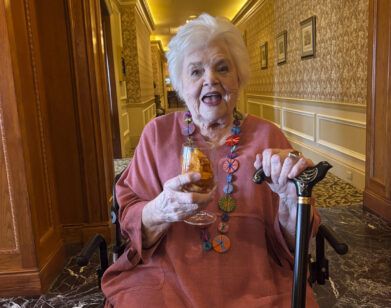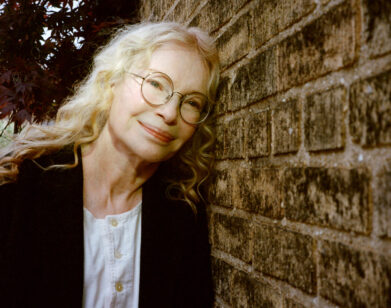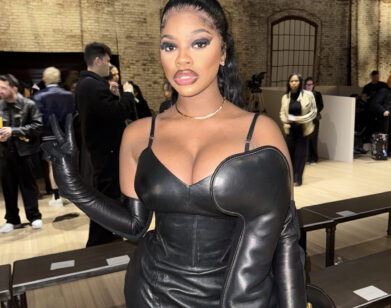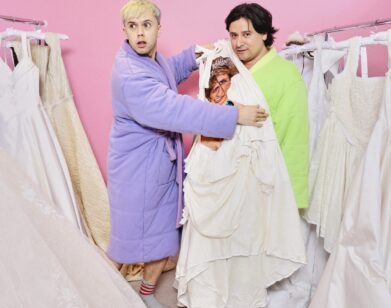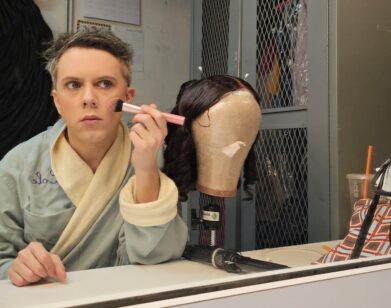one night only
Wigging Out with Amy Sedaris and Cole Escola
Last week, Interview and Free People hosted a special event in Philadelphia. A crowd of roughly 400 guests Gathered for Good at the Academy of Music for “A Night with Amy Sedaris and Cole Escola” benefiting the William Way LGBT Community Center—an organization that supports the diverse queer community of Philadelphia, the brand’s hometown. Sedaris, known for her prolific comedy (and educating rabbits) took the stage with her friend and collaborator Cole Escola, of Search Party fame (widely known for their role as Bridget Everett’s fetus), for a conversation about wig theft, queer icons, and selling it to straight executives—moderated by Interview’s own Ernesto Macias. The one-night-only event is part of Free People‘s commitment to “nurture community at all levels” through experiential events. To take the edge off before showtime, Macias wigged-out with Sedaris and Escola backstage. Catch the vibes of the night with pictures from the event below.
———
AMY SEDARIS: How many people are coming tonight?
ERNESTO MACIAS: 300.
SEDARIS: Okay. That’s so small for me. Intimate. Normally it’s bigger. That’s a lie. That is a lie.
MACIAS: [Laughs] What was the first piece of comedy that sparked your imagination?
SEDARIS: Probably my great-grandmother. We had someone to make fun of in the house. She was the first character I can wrap my head around. What is it for you Cole?
COLE ESCOLA: I don’t know. Dad was mean. I didn’t really like laughing.
SEDARIS: You didn’t like to laugh?
ESCOLA: Not until I was older. I liked sitcoms a lot. Probably Newhart.
SEDARIS: Oh, [Cole’s] so young. I was going to [say] Ernie Kovac’s [Show]. That dates me.
MACIAS: You both have an affinity for wigs. When did it start and how did it manifest?
SEDARIS: I got my first wig in the fall of 1972. I still have it. It has worm castings in it. I didn’t take care of it after a while. That was my first wig. And I would steal wigs off mannequins at JCPenney’s. I was obsessed.
MACIAS: You Cole?
ESCOLA: High school theater. You know shitty Halloween wigs and hats. If you couldn’t have a wig—t-shirts as hair or towels as hair.
MACIAS: Very relatable. The towels as hair.
SEDARIS: I don’t know why I don’t have my own wig line.
MACIAS: I think you need to call your people right now.
SEDARIS: “Don’t wig out. I got an idea.”
MACIAS: Do you have a favorite wig?
SEDARIS: I like the Patty Hogg wig that I wore on our canceled show At Home with Amy Sedaris. That’s a really good one, it was like a helmet.
ESCOLA: I liked my Chassie [Tucker] hair. A lot.
SEDARIS: Chassie was flawless. You should have looked into a spinoff.
ESCOLA: But it’s hard to find good wigs because now wigs are for fashion.
MACIAS: Right.
ESCOLA: So it’s hard to find character wigs.
SEDARIS: You don’t go to Wig Plus on 14th?
ESCOLA: I do.
SEDARIS: Right.
ESCOLA: It’s more like someone trying to dress up.
SEDARIS: You need to buy them on the street.
ESCOLA: Yeah?
SEDARIS: When they’re laid down on the sidewalk with wet clothes because they took the clothes out of someone’s dryer. I got a lot of my wigs off the sidewalk in New York City. The neighbor would send them to me. I got two wigs every Christmas. I was like, “Where did you get this?” and he was like, “Avenue B.”
MACIAS: Was there ever a moment in your career that you thought being myself won’t cut it? And how did you overcome that?
SEDARIS: I like to perform. I like to play people, you know, play-acting. So it’s never fun to play yourself. Unless you play a mean version. That’s always fun. But when I get a direction like “Oh, just do yourself or just use your own voice.” I’m like, “Well why are you asking me? I can’t even read well.” I’m a poor reader. Seriously. People love to play themselves. They say, “It’s so gratifying. It’s so great when you can finally play yourself.” But I’m not there yet. Are you?
ESCOLA: No, I would never want to do that.
SEDARIS: Me either. Maybe we should.
ESCOLA: No, it’s so boring.
SEDARIS: It’s so boring.
ESCOLA: Being yourself won’t cut it.
SEDARIS: Wait a second. Can I interrupt?
MACIAS: Mm-hmm.
SEDARIS: I can ask [Cole] this on stage right? I have more questions about being myself.
MACIAS: I already have so many follow-ups.
SEDARIS: Because when you have two faces…
ESCOLA: You bitch!
MACIAS: [Laughs] Who are your top queer comedy icons of all time?
SEDARIS: Oh!
ESCOLA: Lily Tomlin.
SEDARIS: Yes. That was a big one. Charles Nelson Reilly.
ESCOLA: Charles Nelson Reilly.
SEDARIS: I loved him.
ESCOLA: Paul Lynde. Eleanor Roosevelt.
SEDARIS: [Laughs] Who could we out? Who could we out right now?
ESCOLA: I’m trying to think of who I liked in high school when I was trying to be cool.
MACIAS: Maybe ponder on it for the stage.
ESCOLA: I’ll ponder, I’ll save that.
SEDARIS: Oh great. That kills 20 minutes.
MACIAS: I mean, speaking of comedic icons, if you could model your career on anyone else’s, who would it be and why?
SEDARIS: Cole Escola.
ESCOLA: I wish I had the career that Amy wishes she had.
SEDARIS: I think about that all the time because that’s a question people ask. I’ve never looked at anybody that way and thought, “Oh, I want to do it.” I mean, Tracey Ullman, she got to do character work, or people who just got away with being character actors.
MACIAS: Right.
SEDARIS: But I can’t name anyone, or they’re not people your age group wants to hear, like Whoopi Goldberg. You know?
MACIAS: People care about Whoopi Goldberg!
SEDARIS: I know! That was a bad example. I love her.
ESCOLA: Yeah. What do you have against Whoopi? Oh my God, this is going in print now.
SEDARIS: Her Broadway show was a big inspiration. David [Sedaris] and I memorized it. The one she did in the eighties with Mike Nichols directing. She did all those characters with just a little prop, a towel or something. I was blown away by that.
MACIAS: How do you respond to criticism that your comedy is too niche or too gay?
ESCOLA: I cry. I let it out.
SEDARIS: I try to kill myself. Laughter through the tears.
MACIAS: You’re both widely embraced as queer allies, when did you become aware of your importance in the community?
SEDARIS: The first edition of Out magazine? I have no idea because I don’t really think that way. And my brother David’s…
MACIAS: Of course.
SEDARIS: Gay. So that kind of came…
ESCOLA: You can say it, it’s okay. We’re in a safe space.
SEDARIS: Oh my god!
MACIAS: It’s a safe space, Amy.
SEDARIS: [Laughs] Well, maybe after doing the plays in New York. I felt that they embraced me, which is a great community to be part of. I mean, that’s the audience you want, right?
MACIAS: Right.
SEDARIS: You want gay people. I’m not joking. It’s the best audience ever. I’m going to bring this up. During AIDS, that’s a whole audience that died.
ESCOLA: Yeah. That’s what Fran Lebowitz talks about.
SEDARIS: Probably heard that from her. That whole audience went away, and then now what do you do? Big loss.
MACIAS: Very existential.
ESCOLA: Thanks, Amy.
SEDARIS: And you Cole? When did you feel you were part of the community?
ESCOLA: I don’t know. I guess just because I am gay, I don’t think about it like that.
SEDARIS: Well let’s expand this then. What do you think about a straight audience?
ESCOLA: [Laughs] They’re not ready for me.
SEDARIS: You don’t think so?
ESCOLA: Well I think straight executives don’t think that straight people would accept me. But I think that straight people would.
MACIAS: I mean they already did, sort of. Right?
ESCOLA: I don’t know. When I opened for Amy Schumer it went really well. Even though I was on stage in my underwear, in a wig, playing a woman.
SEDARIS: That’s a lot.
ESCOLA: It’s a lot.
SEDARIS: Yeah.
ESCOLA: But in reality, people just like what’s funny.
MACIAS: That’s all I have.
SEDARIS: That’s all you have?
MACIAS: Yeah.
SEDARIS: I feel wiped out.
ESCOLA: Ready to go home.
SEDARIS: I’m exhausted.
ESCOLA: The car’s outside.

